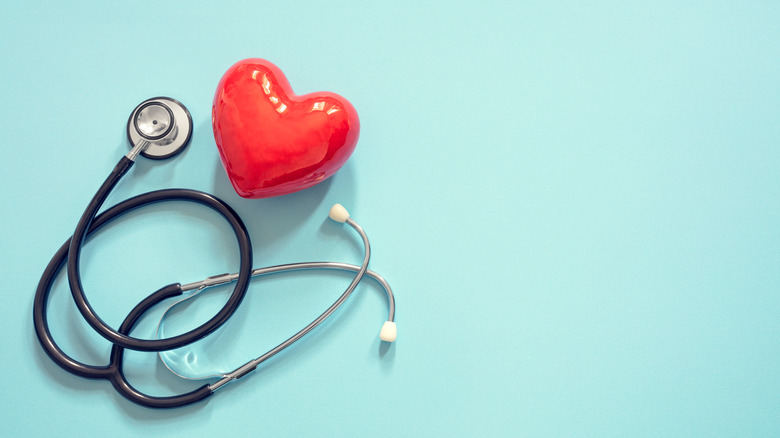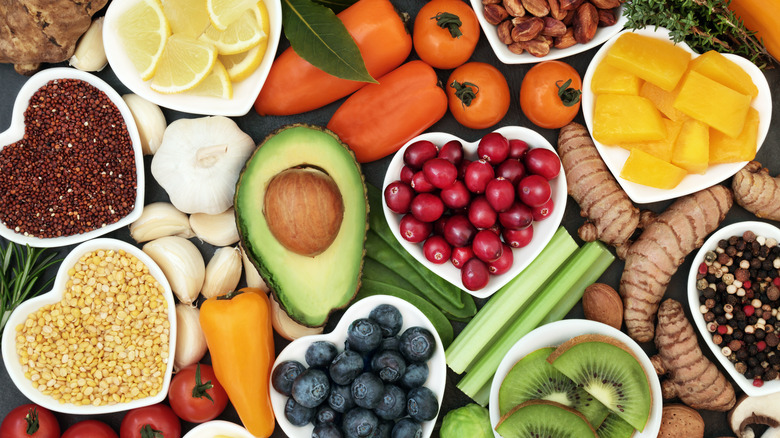Eating This Food Could Help Keep Your Triglycerides Low
Heart health involves numerous factors, and triglycerides are one of them. According to Live Science, triglycerides are a type of fat commonly found in the body, and belongs to the same "family" as cholesterol. At high levels, triglycerides can cause your arteries to harden, ultimately leading to a greater possibility of heart disease and stroke.
Given these outcomes, it's in everyone's best interest to keep their triglycerides low for a healthy and functioning heart. But with the wide range of packaged foods out there designed to make our lives simpler, it's necessary to make informed choices to avoid products that will exacerbate the problem. Cardiologist Steven Nissen tells the Cleveland Clinic that in addition to not getting enough exercise, eating a diet high in sugar can raise triglyceride levels. Sweets aren't the only culprit, since foods high in carbohydrates are broken down into sugar by the body (via Harvard). However, not all carbohydrate-rich foods are created equally and some can even have a positive impact on triglycerides.
How can you improve your diet?
Fiber is often considered to have superfood qualities thanks to its wide array of benefits, and it's found in far more than the type of cereal marketed to keep you regular. Whole grains, fruits, vegetables, beans, legumes, nuts, and seeds all contain fiber, according to Healthline. Although it is still technically considered to be a carbohydrate, fiber behaves uniquely in the body. According to Harvard Health, when you consume fiber, it slows down the absorption of sugar and fat into the bloodstream, pacing your overall digestion.
Furthermore, a 2019 study published in Current Developments in Nutrition identified a relationship between greater fiber intake and a decrease in blood triglycerides. Similar evidence was noted in another 2019 study, and the findings reported in Nutrients demonstrated that consuming foods high in fiber helped reduce triglycerides in adolescents even when paired with a high-fat meal. Although no direct causal relationship has been defined, adding more fruits, vegetables, and whole grains to your diet seems to have promising results. Keep in mind that if your current fiber consumption is low, it's best to add it slowly to avoid any gastrointestinal discomfort.

